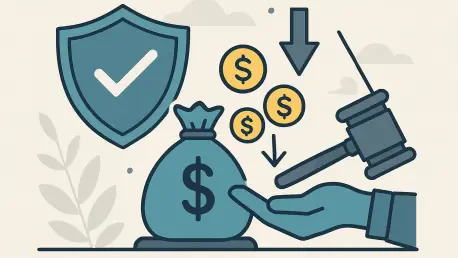Legal system abuses are often hidden drivers of escalating insurance costs, impacting both consumers and insurers alike. Frivolous lawsuits and the practice of third-party litigation funding contribute significantly to this issue, making it an economic burden for the general public. Trusted Choice, in conjunction with the Independent Insurance Agents & Brokers of America (Big “I”), has taken a decisive step with its Legal System Abuse Toolkit. This initiative aims to empower independent insurance agents to educate policyholders on these complex issues and their implications on insurance premiums.
The Central Challenge Facing Insurance Costs
The misuse of the legal system, manifesting through rampant frivolous lawsuits and exploitative third-party litigation funding, has substantial implications for insurance rates. Frivolous lawsuits drive up legal expenses for insurers, which are then passed down to consumers through higher premiums. Third-party litigation funding, where investors finance lawsuits in exchange for settlement portions, only exacerbates the problem, leading to inflated claims and extended legal proceedings that result in higher costs for all involved stakeholders.
Insurance costs continue to climb as a result of these practices, placing an additional burden on policyholders. Although this problem significantly impacts the broader economic landscape, the general consumer base remains largely unaware of how deeply intertwined these legal practices are with the financial strain they encounter due to elevated insurance premiums.
Background and Context
Legal system abuse represents a widespread issue with dire financial repercussions, as evidenced by its staggering $443 billion cost to the U.S. economy each year. This substantial figure translates to an extra $3,600 per household annually, primarily reflected in escalated insurance premiums and operational expenses for insurers. Despite its impact, consumer awareness regarding the connection between legal abuse and insurance costs remains low, as identified by Trusted Choice’s research. Many policyholders are unaware of how these practices adversely affect their financial well-being, demonstrating a significant gap in understanding that needs addressing.
Aggressive legal advertising and the proliferation of mass torts and personal injury lawsuits further fuel litigation activities, heightening the challenges faced by insurers. These issues highlight the importance of creating awareness and understanding among consumers about the financial implications of legal system exploitation.
Research Methodology, Findings, and Implications
Methodology
Trusted Choice employed several approaches to analyze the correlation between litigation activities and insurance premiums. Their methodology involved collecting data through surveys and developing a comprehensive toolkit intended to arm insurance agents with the necessary materials to guide policyholders. By evaluating consumer understanding and participation in such practices, Trusted Choice aimed to quantify the impact of legal system abuse on the insurance industry.
Findings
Findings from Trusted Choice underscore a concerning lack of awareness among insurance agents’ clients regarding the detrimental impact of legal practices on insurance costs. A striking 60% of agents indicated their clients were poorly informed about the link between litigation abuses and premium increases. The toolkit provided by Trusted Choice goes beyond highlighting this lack of awareness by offering educational resources such as tip sheets, infographics, and talking points to effectively communicate these intricacies to their customers.
Implications
The implications of Trusted Choice’s findings suggest that educating policyholders could potentially shift the landscape of insurance premiums. By increasing consumer awareness and understanding of third-party litigation funding and frivolous lawsuits, there’s a possibility to foster a more informed public. This can empower policyholders to actively engage in dialogues about their insurance costs and challenge the practices that unfairly drive these expenses upward.
Reflection and Future Directions
Reflection
Efforts to educate consumers about the influence of legal system abuses on their insurance costs have proven to be challenging. Despite having strategies in place, the sheer complexity of the issue and the deeply ingrained nature of litigious practices create substantial obstacles. Communicating these complexities in a digestible format remains a significant hurdle, and the lack of uniformity in consumer education programs further complicates nationwide implementation efforts.
Future Directions
To continue mitigating legal system abuse in insurance, there is a need for further research into effective methods of delivering educational materials to consumers. Initiatives could focus on the role of digital platforms in enhancing consumer awareness and understanding. Additionally, fostering collaborative efforts between insurers, lawmakers, and consumer advocacy groups will be vital in addressing systemic abuses and establishing a fairer insurance landscape.
Conclusion
Trusted Choice plays a pivotal role in addressing legal system abuses that contribute to inflated insurance costs. Through its Legal System Abuse Toolkit, it empowers independent agents and policyholders with knowledge and strategies to navigate the complexities of insurance premiums. This initiative underscores the importance of transparent communication and consumer education as crucial tools in combating legal abuses and fostering a fairer, more equitable insurance market. Continued efforts, research, and collaboration are necessary to build on these foundations and enhance the overall understanding of litigation practices.









